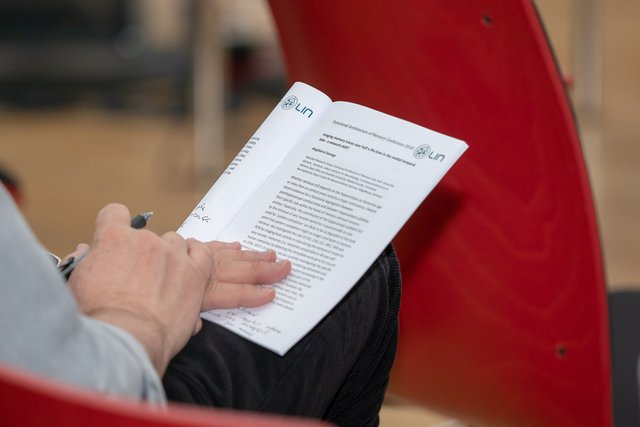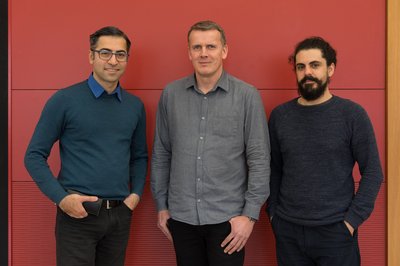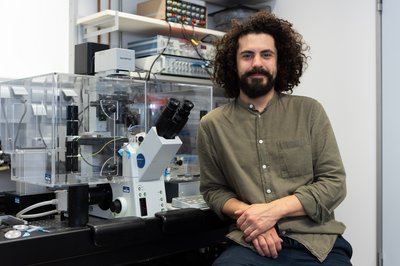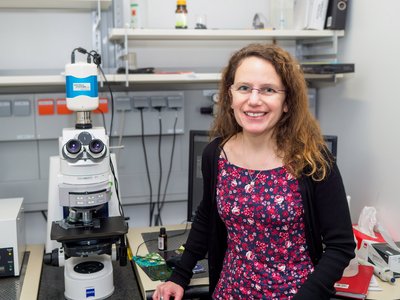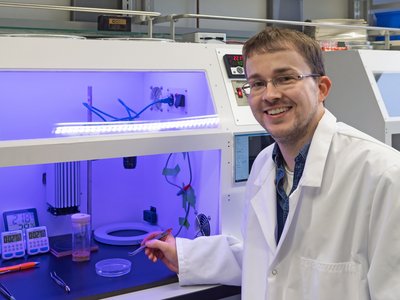Information for Postdocs
The time between a doctorate and a habilitation is often called "postdoctoral phase". The LIN supports the early independence of young group leaders.
Postdoc Representatives
The postdoc representatives of the LIN are committed to promoting the interests of young scientists at the first career levels. They want to improve the visibility of postdocs in the LIN community and also organise social events for more interaction and good networking. In addition, they offer training opportunities specifically tailored to the needs of young researchers.
Our postdoc representatives can be contacted by e-mail at: postdoc_rep(at)lin-magdeburg.de.
Supporting postdocs in Magdeburg
The Leibniz Science Campus "Center for Behavioral Brain Sciences" was founded to support young scientists in Magdeburg. In addition, the CBBS Graduate Programme and the Otto-von-Guericke Graduate Academy provide further education opportunities.
Leibniz Postdoc Network
The Leibniz Postdoc Network was founded to provide a communication platform for all postdoctoral researchers in the Leibniz Association. It is interdisciplinary, as it integrates all sections and research areas. In six working groups, the members concentrate on various topics. They exchange once a year at a conference.
What is your research at the LIN about?
What are you working on right now?
I work on the synapto-nuclear protein Jacob, which serves as nucleus informer of the ongoing synaptic activity and I am interested in how Jacob contributes to pathological conditions.
What do you need it for?
In a recent study, we found that Jacob translocation to the nucleus can have dentrimental effects for the synapse in Alzheimer's disease. We have study in great detail the molecular affairs of Jacob, and came up with a drug that can block the negative effects of Jacob accumulation in the nucleus, restoring synapses and memory in animal models of Alzheimer's disease.
How did you get to LIN?
I first joined as a DAAD-scholarship holder, to perform a PhD internship at the Research Group Neuroplasticity and I returned to the same lab for a postdoc after finishing my PhD. For this postdoc period I was granted an Alexander von Humboldt Foundation / CAPES postdoctoral fellowship.
What are you working on right now?
I´m working on two projects: one is related to the Bassoon´s role in the generation of tauopathies, and the second one to the role of the Bassoon protein in the regulation of presynaptic proteostasis. Bassoon is a large scaffolding protein of the Cytomatrix active zone with a crucial role in the structural and functional organization of the neurotransmitter release site and is expressed in excitatory and inhibitory presynapses and dopaminergic varicosities.
What do you need it for?
I'm developing these projects as they have shown us the importance of the bassoon in regulating presynaptic proteostasis. This is an essential process in protein pclearance, since its deregulation can generate neurodegenerative diseases, such as Parkinson's disease.
How did you get to LIN?
I met Eckart Gundelfinger at a conference in Chile in January 2011. At the time I was writing my doctoral thesis and I had always admired the research of his group. Eckart offered me a position in his group, so I applied. I arrived at the end of 2011 to work as a Postdoctoral Fellow in his lab.
What are you working on right now?
I investigate how dopamine neurons are involved in learning rewards and punishments. I'm interested in how they help distinguish between important and unimportant information. Therefor, I use fruit flies because they have a simple brain and are easy to genetically manipulate.
What do you need it for?
Not only in flies, but also in humans, the dopamine system plays an important role in many learning processes as well as in addictions. My research contributes to a better understanding of how dopamine signals influence learning and behaviour.
How did you get to LIN?
The LIN is one of the best institutes in Germany to research learning and memory. When my supervisor set up the new Department Genetics of Learning and Memory here, it was clear to me that I would join as a postdoc.

